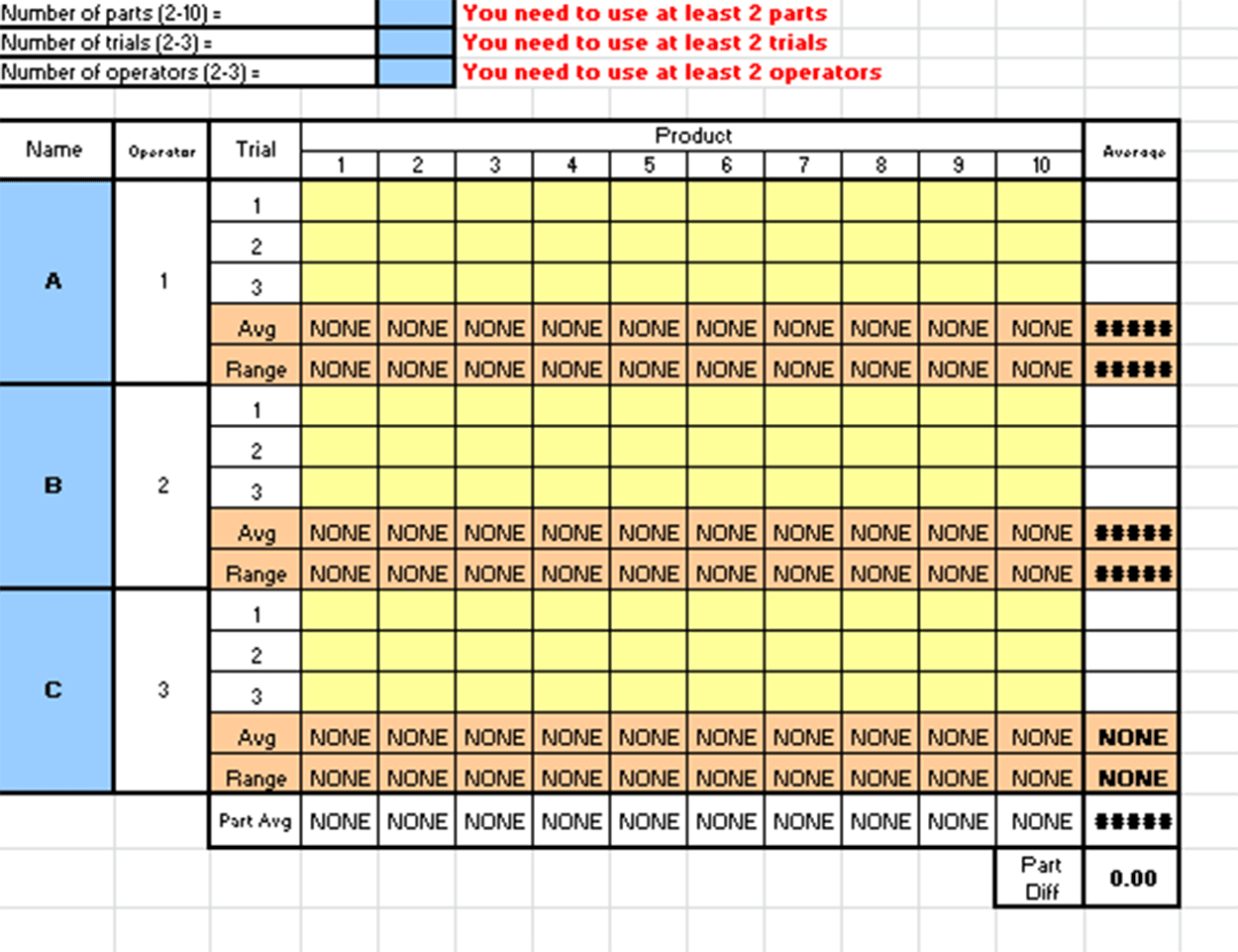Gage repeatability & reproducibility, commonly known as a gr&r, is a statistical method used in process. Web gage r&r measures the size of the noise relative to the total data variation, which is called % of total variation or %tv, and relative to the specification range, called. When should you perform a gage r&r study? Web the basics of gage r&r. Web gage repeatability and reproducibility (gr&r) is defined as the process used to evaluate a gauging instrument’s accuracy by ensuring its measurements are repeatable and.
Web leveraged gauge r&r studies ryan browne, jock mac kay, and stefan steiner. Web a gauge r & r (also known as gage r & r) repeatability and reproducibility is defined as the process used to evaluate a gauging instrument’s. Determining gage capability case 2: Web the purposes of gage r&r analysis are to (1) determine how much of the total observed variability comes from the gauge, instrument, or measurement system;
Web the purposes of gage r&r analysis are to (1) determine how much of the total observed variability comes from the gauge, instrument, or measurement system; Web gage repeatability and reproducibility (gage r & r) is a cornerstone of quality control, ensuring that measurement systems are consistent, accurate, and reliable. Web most gage r&r studies assess the effects of two factors on variation in your measurement system—typically operator and part.
Web gage r and r, standing for gauge repeatability and reproducibility, offers a systematic approach to evaluating just that. Web gage repeatability and reproducibility (gr&r) is defined as the process used to evaluate a gauging instrument’s accuracy by ensuring its measurements are repeatable and. Web gage r&r is a key method in manufacturing and industrial businesses, where precise measurements are important, and the reliability and accuracy of measurement. Web leveraged gauge r&r studies ryan browne, jock mac kay, and stefan steiner. Web the purposes of gage r&r analysis are to (1) determine how much of the total observed variability comes from the gauge, instrument, or measurement system;
Determining gage capability case 2: Web are you curious about how to perform a gauge r&r? Determining gage capability case 3:
Gage Repeatability And Reproducibility Studies ( Gage R&R) Are A Type Of Measurement Systems Analysis (Msa).
Ample to illustrate how to estimate these parameters and obtain approximate standard errors. Web gage repeatability and reproducibility (gage r & r) is a cornerstone of quality control, ensuring that measurement systems are consistent, accurate, and reliable. An engineer selects 10 parts that represent the expected range of the process variation. When should you perform a gage r&r study?
Web Gage R&R Is A Key Method In Manufacturing And Industrial Businesses, Where Precise Measurements Are Important, And The Reliability And Accuracy Of Measurement.
Web the basics of gage r&r. Web the purposes of gage r&r analysis are to (1) determine how much of the total observed variability comes from the gauge, instrument, or measurement system; Web a gauge r & r (also known as gage r & r) repeatability and reproducibility is defined as the process used to evaluate a gauging instrument’s. Web gage r&r measures the size of the noise relative to the total data variation, which is called % of total variation or %tv, and relative to the specification range, called.
Web What Is Gage Repeatability & Reproducibility (Gr&R)?
Web most gage r&r studies assess the effects of two factors on variation in your measurement system—typically operator and part. This powerful tool doesn’t just measure; Gage r & r study (crossed): Web performs gage r&r analysis for the assessment of the measurement system of a process.
Determining Gage Capability Case 2:
Web gage r and r, standing for gauge repeatability and reproducibility, offers a systematic approach to evaluating just that. Gage r & r study (crossed):. Web gage repeatability and reproducibility (gr&r) is defined as the process used to evaluate a gauging instrument’s accuracy by ensuring its measurements are repeatable and. Web leveraged gauge r&r studies ryan browne, jock mac kay, and stefan steiner.
Web the purposes of gage r&r analysis are to (1) determine how much of the total observed variability comes from the gauge, instrument, or measurement system; Three operators measure the 10 parts, three times per part, in a. Determining gage capability case 2: Ample to illustrate how to estimate these parameters and obtain approximate standard errors. Web gage r and r, standing for gauge repeatability and reproducibility, offers a systematic approach to evaluating just that.






